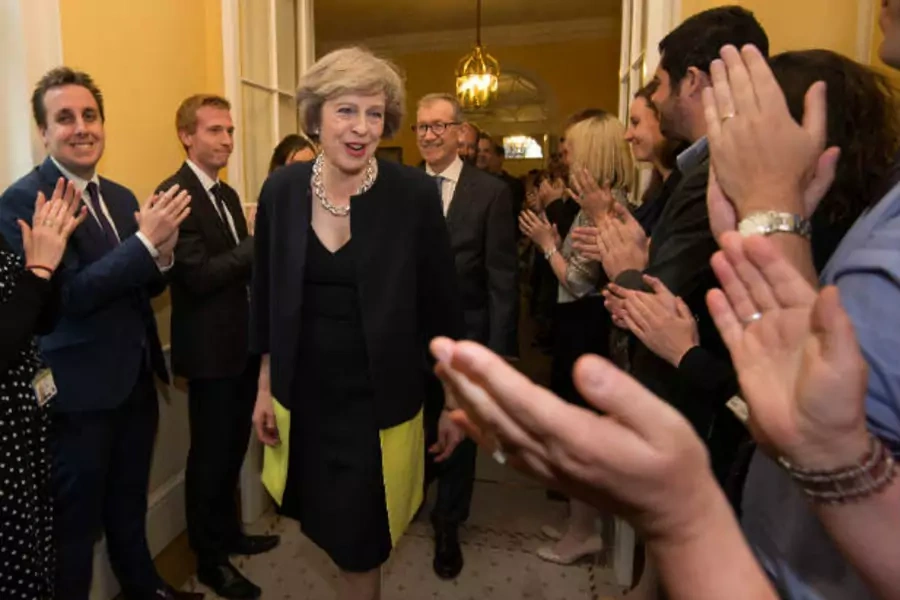Women Around the World: This Week

Welcome to “Women Around the World: This Week,” a series that highlights noteworthy news related to women and U.S. foreign policy. This week’s post, covering from July 9 to July 16, was compiled with support from Becky Allen, Anne Connell, and Lucy Leban.
Theresa May becomes UK Prime Minister Former UK Home Secretary Theresa May was formally appointed British prime minister on Wednesday, taking the reins from David Cameron, who offered his resignation following last month’s referendum to leave the European Union. May becomes the second woman in history to hold the post (following the late Margaret Thatcher). With May at 10 Downing Street and Angela Merkel as the German Chancellor, women now head two of the world’s five largest economies. Public polling shows that well over half of British voters view May favorably; her reputation for dependability during crisis led her to emerge as a unity candidate to succeed Cameron. As Home Secretary, May made combating human trafficking a central aim of her office, bringing attention to the estimated 10,000 trafficked people in Britain who are often forced to work as prostitutes or in grueling agricultural or service positions, and backing the Modern Slavery Act of 2015 to strengthen anti-trafficking measures. May now faces the challenging task of calming the country and global financial markets in the wake of the Brexit vote. In her first public speech after her appointment, May promised to “build a better Britain” not only by honoring the public referendum and shepherding the country through exit negotiations with the EU, but also boosting the British economy and addressing domestic social justice issues.
Violence erupts in South Sudan As South Sudan—the world’s youngest country—marked its fifth year of independence last week, intense fighting broke out around the capital city of Juba. Over 300 people, including dozens of civilians and two Chinese peacekeepers, were killed before a cessation of hostilities was signed on Monday evening. Many fear that the violence signals a breakdown of the nation’s tenuous August 2015 peace agreement and a renewal of the armed conflict that began in 2013 as a political struggle between President Salva Kiir and his rival Vice-President Riek Machar, with roots in ethnic divisions. The conflict, which resulted in tens of thousands killed and more than 1.6 million internally displaced, was defined by brutal targeting of civilians along ethnic lines, widespread rape and sexual violence, destroyed property and looted villages, the recruitment of child soldiers, a surge in bride price and uptick in child marriage, and the world’s worst food crisis. UN agencies have concluded that abduction and rape of women and girls have been systematically perpetrated by all armed parties, with UNICEF officials noting that “civilians are bearing the brunt of the conflict in South Sudan, with women and children facing the greatest dangers and hardships.”
India’s government invests in women Indian officials signed a $290 million credit agreement with Bihar’s state government and the World Bank last week to diversify India’s economy and invest in women-owned farming projects. The agreement will enable the Bihar Transformative Development Project to increase access to markets and provide financial and public services to five million women from poor rural households. The investment will expand existing value chains and develop new women-owned farming companies. The World Bank’s program leader for India suggests that “this project will help scale up access to financial services for a majority of the rural poor in Bihar and also improve the nutrition and sanitation services available to them.” India currently ranks low among world economies with respect to women’s labor force participation: only 27 percent of India’s women participate in the formal economy. Studies suggest that supply-side policy initiatives, like the new program in Bihar, could significantly boost women’s participation and contribute to economic growth, and that India is one of a handful of countries that stand to see the greatest gain in GDP from closing the gender gap in labor force participation.
 Online Store
Online Store